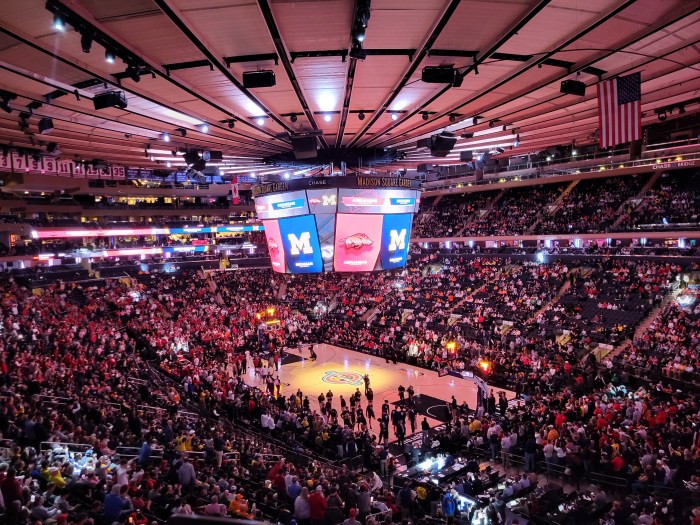Mayor Bill de Blasio swept into office with a liberal furor, hellbent on rolling up his sleeves and embracing the progressive issues that he held dear: mending relationships between police and communities, providing new affordable housing, and starting education early and strong, to name a few.
He has made progress on many of these fronts: reforming low-level drug conviction policies, starting to build new affordable housing, and a free all-day prekindergarten program. But recently his populist tone has shifted, particularly after the deaths of NYPD Dets. Wenjian Liu and Rafael Ramos and, last week, Det. Randolph Holder.
As the reliably oppositional voices attack him on the homeless situation, and amid perceived upticks in crime numbers, the mayor has sought to defend himself on law and order — bread and butter for big city politics.
To those even further left than the mayor, this has been both a mistake and a betrayal.
Last night, representatives from a coalition of progressive groups questioned his commitment to liberal ideals on issues ranging from criminal justice to housing and the homeless. Protesters affiliated with groups such as New Yorkers Against Bratton, NYC Shut It Down, and NYC Solidarity with Palestine gathered outside the Sheraton Times Square, where de Blasio held a fundraiser, expected to raise $1 million, to kick off his 2017 campaign.
Two years into his term, de Blasio is getting a healthy dose of the political realities of governing New York: the prose and not the poetry, as a Cuomo once said. As with President Barack Obama’s firmly liberal supporters, the party’s left wing is not entirely satisfied even in victory. A Quinnipiac University poll released Thursday shows de Blasio still ahead of presumptive challengers, but it won’t be as easy as last time. Will progressive voters, who hoped that de Blasio would immediately transform the city after decades of Republican leadership, stay with him in 2017?
De Blasio is not the first politician to be labeled a sellout, but he probably didn’t expect his tale of two cities to lead to calls for the guillotine.




































